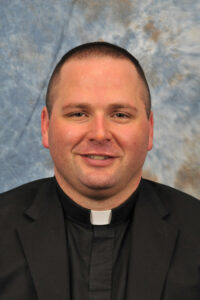“I trust you.” These three words are some of the most important that we can say to someone else or to an organization because so much is implied in this statement. These words mean that an informal contract has been established in which a relationship can be formed and maintained. We figuratively, and sometimes literally, hand over a part of our lives to another. Whether we acknowledge it or not, trust fills our daily lives. The academic fields of sociology and political science reveal how much of our day-to-day lives are dependent on trust in our laws, government, law enforcement officers, financial systems, friends and, most importantly, our family. Without this trust, many of our daily activities would become much more difficult or would simply stop because our lives would move from trust to fear and suspicion. “Is this person going to take advantage of me?” “Why are these people being nice to me?” “Who is going to look out for me?” Simply put, trust allows us the freedom to live our lives to the fullest because we are not worried about being hurt or taken advantage of by others.

How do we learn to trust? It seems that we inherently learn to trust as babies and young children. Our parents, guardians and friends show each of us by their years of care that people can be trusted to provide for our needs. This truth usually remains intact unless an experience ruptures a person’s ability to trust. This loss of trust eventually happens to all of us in some way because of the sinfulness that fills this world. Therefore, the challenge for each of us personally is discerning who we can trust and who we cannot trust. This reality is becoming more and more difficult.
It seems that the growing secular culture, a culture lacking any reference to religious faith, has uprooted trust. The values put forward by this secular culture do not build trust because of the culture’s focus on individualism and subjectivism. The Golden Rule has been replaced by the desire for material reward. Love of God and love of neighbor are being replaced by love of self. As mentioned above, if we cannot trust, our lives become much more difficult and lonely.
In the 14th chapter of the Gospel of John, a person will find an incredible lesson in trust. If you read the entire chapter, you are struck by the importance of the disciples having trust in Jesus at this significant moment when his crucifixion is near. They knew that Jesus was trustworthy, but they would still struggle in trusting him as the denial of St. Peter makes very clear. However, the words “do not let your hearts be troubled” teach us that by placing our trust in Jesus above all else we are better able to decide how we are going to live in this world.
Therefore, in the midst of a culture that is not helping to build trust, we need to work more fervently at developing a relationship with Jesus Christ, who will help us to do two important things. First and foremost, our relationship with Christ should help each of us become more trustworthy ourselves by rooting out the sinfulness that destroys our ability to help others. Each of us needs to be the example of trust that the world desperately needs. Secondly, our faith in Jesus will give us the grace to better navigate the world we live in with all of its struggles and sinfulness. Therefore, we do not grow despondent by what we experience in the world; we fervently commit that we will work to change it.
(Fr. Greiner is pastor of St. Anthony Parish in Knoxville and Sacred Heart Parish in Melcher.)











